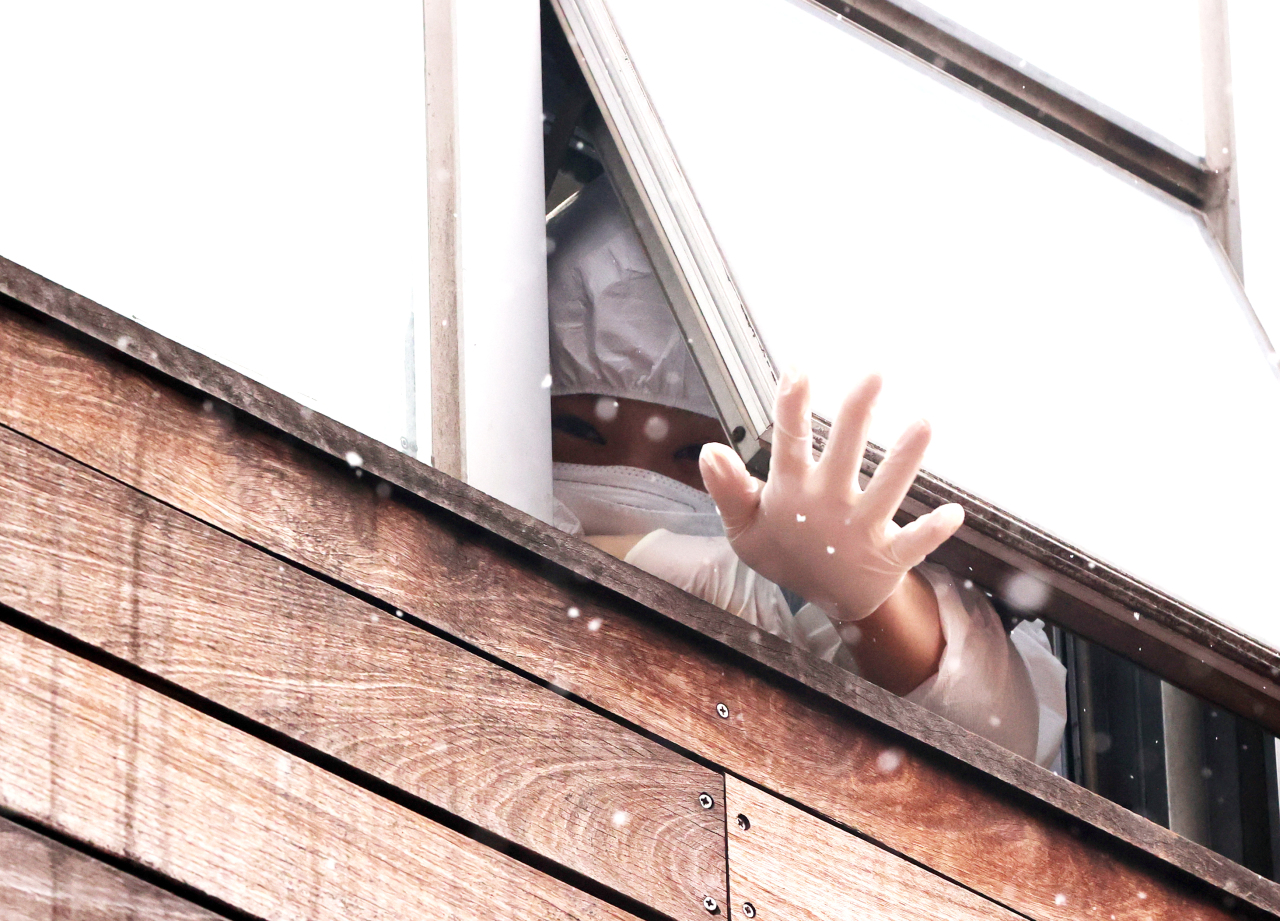[Herald Interview] Nursing home residents are being ‘quarantined to death’
By Kim ArinPublished : Jan. 3, 2021 - 17:50

As COVID-19 ravages through nursing homes in South Korea, their vulnerable residents are being “quarantined to death” without getting a chance of treatment, says Dr. Son Deog-hyeon heading the Korean Convalescent Hospital Association.
Son told The Korea Herald in a telephone interview that the recent string of outbreaks at nursing homes across the country was “made deadlier” by leaving those with and without the virus together in a practice known as cohorting.
“Every member of the nursing homes -- residents as well as staff -- are being confined at these facilities regardless their status of infection,” he said.
He said that as nursing homes and other long-term care residences consist of multi-bed rooms and a lot of common areas, keeping infected and non-infected people separate was almost impossible.
“As a result, the virus spread like a wildfire at these facilities,” he said.
The “cohort quarantines,” which were meant to last until the patients are transported to hospitals, has extended for days on end, and at times weeks, due to shortages in beds.
One nursing hospital in Guro, southern Seoul, reported 200 cases less than three weeks after its first case was confirmed. All the while, no one could leave the hospital. At least eight who were initially negative later became sick with COVID-19 and died while still in quarantine.
Sixty-two workers at the hospital who were quarantined alongside the patients eventually contracted the virus, but had to continue caring for the residents while they had it.
“It’s neglect is what it is,” he said. “Such approach to nursing home outbreaks is about controlling the infections from spreading to communities, rather than providing care to those sick with COVID-19.”
Son also raised issue with the government’s decision to exclude people who died in quarantine at nursing homes from the tally of “deaths while waiting for treatment.” Nursing home deaths do not qualify as such because they have access to “some form of care,” the government explained.
“But nursing homes and nursing hospitals do not have the equipment or staff necessary for proper COVID-19 care,” Son explained. “It’s nonsense.”
Son, who specializes in health care for elderly people, said nursing home residents should be transferred to hospitals immediately after diagnosis as they are at greater risk of severe complications and death from COVID-19.
“Many residents are older, with underlying conditions. They should be given priority for hospital beds.”
In the past month, outbreaks at nursing homes left over 1,100 sick with the virus and at least 316 dead, according to the Korea Disease Control and Prevention Agency. Nearly 60 of them died in quarantine at the facilities, before they could receive hospital treatment.
On Dec. 28, the government began transferring COVID-19 patients from nursing homes to hospitals, but 17 nursing homes or nursing hospitals around the country are still subject to similar quarantines, according to the latest available government data.
Son accused the government of having “squandered opportunities” to keep nursing homes safe from the pandemic. The residents still have to pay for their own COVID-19 tests. While visitation is cut off, existing staff took on additional work of providing day-to-day support that was previously shared by the family, but their wages remained the same.
Most importantly, there were no beds ready once one of them contracted the disease, he said. This can easily be resolved by designating one hospital per region as COVID-19-only through financial incentives.
“Mistakes from the very early months of the epidemic are being repeated. If we don’t amend our response, many more preventable deaths will occur.”
By Kim Arin (arin@heraldcorp.com)








![[Today’s K-pop] BTS pop-up event to come to Seoul](http://res.heraldm.com/phpwas/restmb_idxmake.php?idx=644&simg=/content/image/2024/04/17/20240417050734_0.jpg&u=)

![[Graphic News] More Koreans say they plan long-distance trips this year](http://res.heraldm.com/phpwas/restmb_idxmake.php?idx=644&simg=/content/image/2024/04/17/20240417050828_0.gif&u=)






![[KH Explains] Hyundai's full hybrid edge to pay off amid slow transition to pure EVs](http://res.heraldm.com/phpwas/restmb_idxmake.php?idx=652&simg=/content/image/2024/04/18/20240418050645_0.jpg&u=20240419100350)

